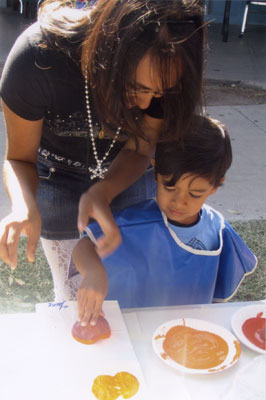All Nonfiction
- Bullying
- Books
- Academic
- Author Interviews
- Celebrity interviews
- College Articles
- College Essays
- Educator of the Year
- Heroes
- Interviews
- Memoir
- Personal Experience
- Sports
- Travel & Culture
All Opinions
- Bullying
- Current Events / Politics
- Discrimination
- Drugs / Alcohol / Smoking
- Entertainment / Celebrities
- Environment
- Love / Relationships
- Movies / Music / TV
- Pop Culture / Trends
- School / College
- Social Issues / Civics
- Spirituality / Religion
- Sports / Hobbies
All Hot Topics
- Bullying
- Community Service
- Environment
- Health
- Letters to the Editor
- Pride & Prejudice
- What Matters
- Back
Summer Guide
- Program Links
- Program Reviews
- Back
College Guide
- College Links
- College Reviews
- College Essays
- College Articles
- Back
The Price of Generosity MAG
The sun was setting and the tiny shops were starting to close their wooden doors. But elsewhere, everything was just getting started; Madrid, the capital city of Spain, was coming to life. On the large historic plaza, performers and skaters were doing daring acts that made me gasp with disbelief.
But what really got my attention were the men in the shadows hawking knockoff purses and cheap sunglasses. They were desperately trying to sell their wares, shouting their low prices to American tourists. Soon, though, the police came – and the men ran, shoving everything into drawstring trash bags, ignoring the stray sunglasses and paper fans that cluttered the ground. The police officer got out of his car, took a few steps, and then drove off. As soon as the patrol car was out of sight, the men cautiously set up their wares again. The plaza was back to normal within minutes.
It occurred to me that these men probably couldn’t afford, or didn’t have the paperwork necessary to acquire, the permits to sell souvenirs legally on the streets. Here I was vacationing with my family, enjoying the sights and not thinking about much else. But seeing men struggling to sell fake Prada handbags in order to provide themselves with dinner made me realize how much inequality exists in the world and how little I can do about it.
It made me sad to think that these people came thousands of miles from their homelands in Africa in search of a better life only to be running from the authorities in order to make ends meet. I felt grateful for what I had, and although I didn’t want to acknowledge others’ hardships, I knew I needed to think about my life differently.
Even as teens, we can do things to help others. Suppose your parents give you a $5 allowance each week. Maybe you use the money to buy a Starbucks Frappuccino. But after that sugary drink gives you pleasure for twenty minutes, both the money and the drink are gone. What if you used that $5 differently?
According to the United Nations Food Program, $50 can feed one child in a developing country for an entire year. The money spent on just one Frappuccino could feed a hungry child for a month. Depriving myself of one Frappuccino in exchange for feeding a hungry child is a small sacrifice for a huge result. It’s amazing that giving up something so small can have such a tremendous impact on another’s life.
The truth is, people resist giving away what they have, especially hard-earned money. I enjoy Frappuccinos and I wouldn’t want to stop drinking them completely. But generosity doesn’t necessarily take everything away from you.
Many people believe that only the extremely wealthy can impact the world, but contrary to popular belief, people in the middle class actually donate a larger percentage of their money than the affluent. In 2013 people who earned $50,000 donated on average 3.5 percent of their income to charities, while those who earned $500,000 donated just 2.5 percent, according to the National Center for Charitable Statistics. People who have less often have a better awareness of life’s hardships and are more willing to help others.
It’s also been proven that altruism boosts an individual’s personal contentment and that a “connection to others” satisfies us. Generosity doesn’t have to be about money. We can be generous with our time or even our thoughts. Everyone can be generous. Even the smallest act of generosity can make the world a better place.

Similar Articles
JOIN THE DISCUSSION
This article has 0 comments.